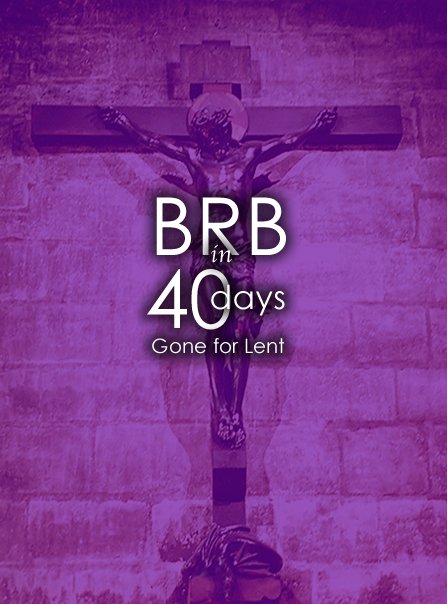Updated 02/28/17
On the first day of Lent, I expect when I open my Facebook news feed that several of my friends will post this type of status update:
“Hey y’all! I’ve decided to give up Facebook for Lent. I need to spend some quality time with my buddy JC. If you need to get ahold of me during Lent, please shot me a text, an e-mail, or a tweet.
See you in 40 days, Facebook friends!!!!!”
This status update is followed by 35 likes, and 10 comments where my friend’s Facebook friends congratulate my friend on her self-discipline, and how this fast will help her grow closer to Jesus.
Having read Thomas Merton’s New Seeds of Contemplation, these status updates make me stop and assess the validity of social media fasts as a form of detachment. There seems to be a growing movement amongst my Christian friends to equate social media usage with un-holiness. I can understand why this link exists. Facebook can be a huge time-suck. Twitter could put newspapers out of business. Instagram might be producing a generation of narcissists.
I’m not denying that excessive social media usage can make it difficult to follow Christ. My problem with Facebook fasts is that they can encourage Christians to take a certain pride in their ability to unplug, without helping them to address the overemphasis of self their attachment to social media can perpetuate.
Let me explain.
Thomas Merton, in New Seeds of Contemplation believes that a contemplative must detach themselves not just from the things of this world that distract them, but also from their very sense of self. In other words, a Facebook fast is not going to help you draw closer to God if the fast does not make you think about why your sense of self depends on having 900 Facebook friends. A Facebook fast also will not help you draw closer to God if you substitute one area of self for another, i.e giving up Facebook, but making yourself more available via text messaging, e-mail, or Twitter.
So instead of doing a Facebook fast this Lent, should we all delete our Facebook accounts?
Perhaps. For some people, the only way for them to detach themselves from their sense of self is by removing all things that distract them from God. But what if we started to envision social media not as a way for us to brag about ourselves, but as a way for us to detach from ourselves and more fully engage with each other as people of God? Instead of fasting from Facebook for 40 days, what would it look like if we committed to wishing everyone a “Happy Birthday” whose birthday fell during Lent? Or if we committed to writing one encouraging post a day on a different friend’s wall for 40 days?
If Thomas Merton were alive today, I like to imagine how he would use social media in a detached way. I picture him logging in on Sunday afternoons while sipping a hot cup of tea, gleeful with the idea of loving his scattered friends with words of encouragement, birthday wishes, and inspirational quotes.
The Rev. Rebecca DePoe is pastor of Mt Nebo United Presbyterian Church in Sewickley, Pa., and can be found on social media throughout Lent. Follow her tweets at @RebeccaDePoe. She previously served as the seminary intern at Bellevue United Presbyterian Church and live tweeted her #ch47pts readings.

